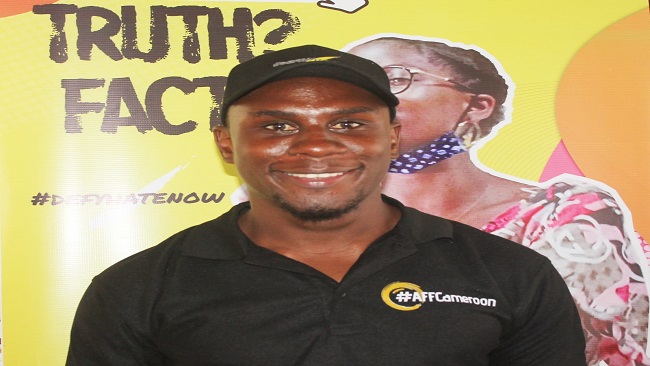8, May 2023
Director of Timezone Marine Ventures says EU red card is pushing Cameroon toward China 0
A European Union ban on seafood from Cameroon is prompting local fleets to look toward China for investment, according to Edwin Ngwafor, who is the director of Timezone Marine Ventures, a Yaoundé-based firm with a permit for 40 vessels.
Ngwafor, who is also the deputy managing partner at a Cameroonian law firm, wants to attract a Chinese partner who can bring money and expertise to a joint venture project that would aim to sell species including barracuda, sole, tuna, and shrimp to local markets and abroad in Asia.
This comes as the E.U. in January 2023 designated Cameroon a “noncooperating country,” barring its fishery products from entering European markets because the country continues to register fishing vessels operating outside its waters without sufficiently monitoring their activities.
SeafoodSource spoke with Ngwafor about how Cameroonian fishing efforts aim to respond and adapt to the red card ban and what he personally aims to accomplish with his own fishing ventures.
SeafoodSource: Why do you seek new access to Asia? Would it not be better to fix the problems highlighted by the E.U. and retain access to that valuable market?
Ngwafor: The economic relationship between China and Africa is not a secret, and this is true across all sectors. China has played active roles in Africa in infrastructure projects, trade and commerce, telecommunications, defense, and security. Many fishing companies in Cameroon have focused on partnerships with China, especially following the unfortunate sanction meted out recently against Cameroon by the E.U.
Following the E.U. ban, local fishing companies in Cameroon have found the necessity to adapt and survive irrespective. They provide employment and sources of income to hundreds of thousands of people, and this is crucial for the local economy. Local companies believe the fostering and advancement of their partnerships with Asia in general, and China in particular, provide a viable commercial alternative which will, in turn, enable the realization of their business objectives.
This by no means implies that the Cameroonian government is resting on its laurels in the process to restore its credibility and relationship with the E.U. To address the problem, the [Cameroon] Ministry of Livestock, Fisheries and Animal Industries is collaborating with other organizations to launch a project entitled “Stop IUU [illegal, unregulated, unreported] fishing in Cameroon.”
The project is implemented in collaboration with other institutions, such as Global Fishing Watch and the Food and Agriculture Organization of the United Nations, along with Cameroon’s Ministry of Transport and the National Navy. There have also been several consultation meetings for the revision of the Cameroonian law on the governance of fishing and aquaculture and an inventory of the Cameroonian fishing fleet.
SeafoodSource: What is the opportunity for Chinese companies for fishing in Cameroon?
Ngwafor: There are wide-ranging opportunities in the sector for international fishing companies, including Chinese companies, especially given the fact that Cameroon continues to be unable to meet the nutritional needs in fishery products of the population, which are estimated at nearly 500,000 tons annually. Also, Cameroon is situated in a unique geographical location, which provides a varied diversity in fishery products and is favorable to quick export through the Douala Seaport, the main seaport in the CEMAC [Economic Community of Central African States] subregion.
Cameroon has a global reputation for the quality of its shrimp, which is highly prized in international markets. In addition to all these, there are several investment opportunities in niche areas, such as setting up industrial units for shrimp and fish, distribution chains, manufacturing fishing equipment, processing, and packaging units for fisheries products, as well as assembly plants for fishing vessels.
SeafoodSource: Are you worried about various controversies in Ghana and Senegal featuring Chinese fleets overfishing and illegally fishing?
Ngwafor: The court cases in Ghana are an example such as the cases in the Spanish courts in Europe. These cases are specific in their own facts. Our company is not discouraged by the events in Ghana, as we believe these are unique and not wholly reflective of the general ethos of Chinese fishing companies.
There are thousands of Chinese companies engaged in fisheries partnerships all over the world, and if a fraction of these are naughty, it must not taint the image of those who are ethically sound. Our company is open to do business with responsible partners, including Chinese companies, and commits to adhere to local and international requirements against IUU fishing as we seek to establish a strong and respected global reputation.
SeafoodSource: Don’t you think it would be far more valuable for you to catch and market the fish as a local firm rather than selling or renting licenses to a foreign investor?
Ngwafor: It will be …
Culled from SeafoodSource


























8, May 2023
123 Southern Cameroonians have been killed since the beginning of the year 0
At least 123 civilians have been killed since the beginning of the year during the conflict in the English-speaking regions of Cameroon.
Communities are demanding self-rule from the Central African country. They cite marginalisation by the government of President Paul Biya, with a majority of officials from the majority French-speaking zones.
The United Nations Children’s Fund (UNICEF) disclosed the death toll, which could be higher since the figures are for the period covering January to March.
The crisis is escalating in the North-West and South-West regions.
UNICEF reported that during the period, no less than 187 people had been injured in the clashes perpetrated by the Ambazonian militants, who are running battles against the military and civilians.
Some 539 people were arrested during military searches or operations in both regions.
In the North-West and South-West, at least ten lockdown days were imposed and observed during official events organized by the Cameroonian government.
Most localities in these regions continue to comply with the ongoing, so-called Monday ghost town days.
However, humanitarian organizations report that during this reporting period, 11 civilians were killed for not observing the curfews.
In the northwestern division of Momo, humanitarian activities, including food movements, were suspended due to roadblocks mounted by non-state armed groups.
Elsewhere, suspected members of Boko Haram from neighbouring Nigeria are terrorising communities.
An estimated 1 652 people have been newly displaced due to this ongoing insecurity in the Far North. There, unidentified gunmen abducted 82 civilians in February.
Torrential rains have exacerbated matters in the South-West region.
Rains that struck the city of Buea in March caused mudslides that affected an estimated 900 people.
At least two fatalities, four injuries and one person missing were documented.
Water supply infrastructure and latrines serving over 3 000 people were damaged.
Without immediate funding of US$940 000) required by UNICEF, there will be a shortage of ready-to-use therapeutic foods (RUTF), leaving over 20 000 children aged 0-59 months without treatment and an increased risk of death.
The secessionist crisis in the country of 28 million started in 2017, leaving hundreds dead. Critics also accuse Biya of rigging elections.
Aged 90 and in power since 1975 as Prime Minister and in 1982 as president, he is the longest consecutively serving current non-royal national leader and the oldest head of state in the world.
Source: CAJ News